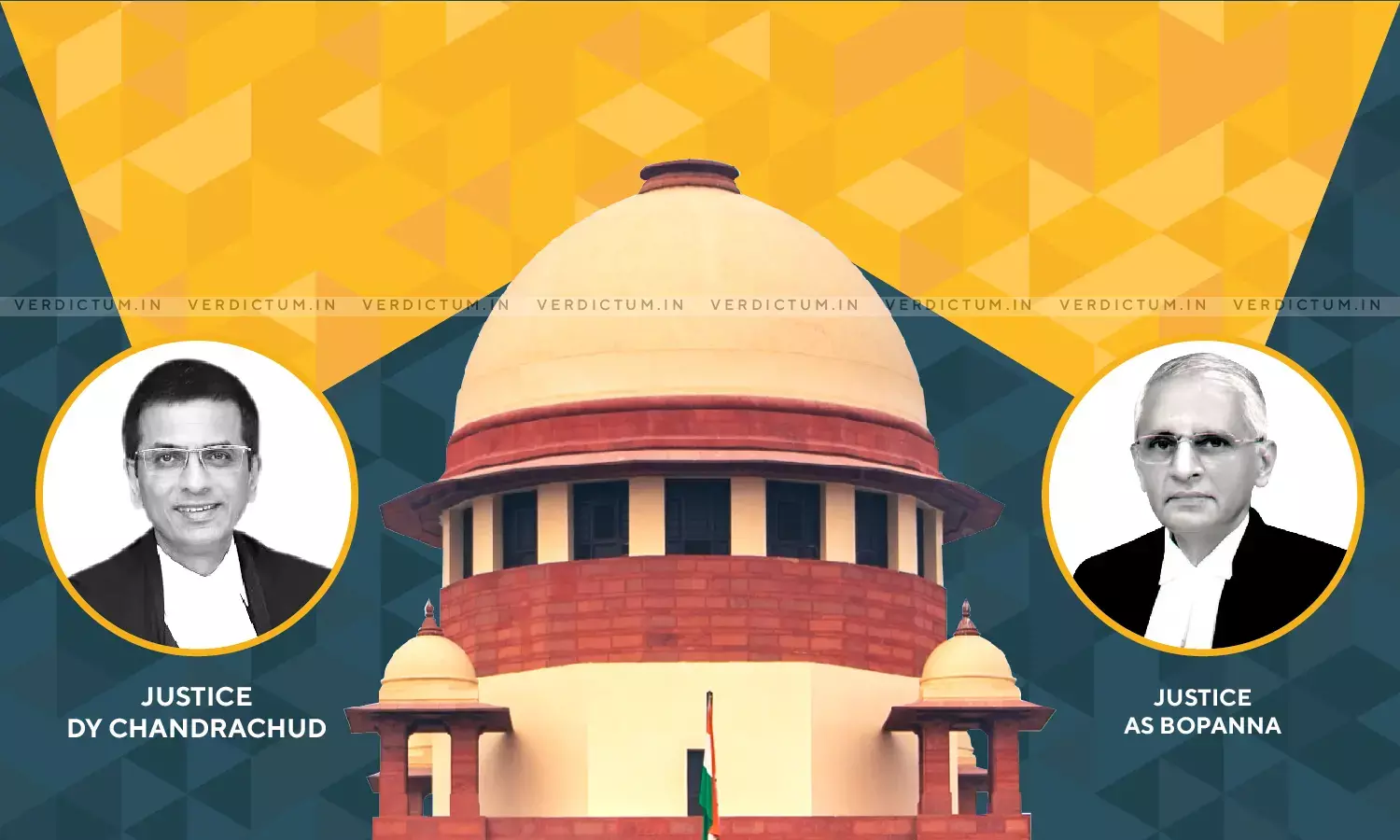No Bar In Intimating Candidates Through SMS During Selection Process – SC On UP Constable And Head Constable Rules, 2008

A two-judge Bench of Justice Dr. DY Chandrachud and Justice AS Bopanna has held that there is no bar in intimating candidates through SMS regarding the selection procedure consisting of document verification and physical fitness test, especially when a large number of candidates have applied for the advertised post.
Advocate Mr. Pradeep Misra appeared for the Appellants while Advocate Mr. Sarvesh Kumar Dubey appeared for the Respondent during the proceedings before the Court.
An appeal was preferred assailing the judgment of the Division Bench of the Allahabad High Court which had allowed the Respondent to appear for the document verification and physical fitness test for the post of Constable pursuant to the advertisement in the year 2015.
In this case, the Appellants had published an advertisement in 2015 to recruit Police Constables to the Provincial Armed Constabulary (Male) by direct recruitment. The Respondent had applied for the said post. For the completion of the selection process, the documents of the candidates were to be verified and they were also subjected to a physical fitness test.
The issue which arose between the parties was the Respondent was unable to appear for the physical fitness test and also for document verification for the alleged want of written communication.
The Appellants contended before the Supreme Court that since a large number of candidates applied for the post and process to be completed, all the candidates were intimated by sending SMS to appear for the procedure.
It was further argued that the negligence of the Respondent to such SMS by appearing for the process should have been to his own detriment and could not interfere with the process of selection which was completed. Also, it was contended that though one opportunity was granted as a concession to about 151 candidates pursuant to direction issued by the Court, it could not be a continuing one as and when candidates sought to reopen the selection process time and again.
While the Respondent argued that intimation should have been sent through the post and merely sending SMS would not be sufficient.
Further, it was argued in this case 3 years had elapsed from the date of the application, there could not have been an assumption that the candidate would possess the same mobile connection in that number.
The Apex Court after hearing the contentions of the parties at length observed, "There is no bar in intimating the candidates through SMS, more particularly when large number of candidates had to appear in the subsequent process and majority of the candidates have appeared for document verification and physical fitness test pursuant to intimation by SMS."
"Even, so far as the respondent is concerned, it is not his case that he had not received the SMS. It is only a technical contention that he ought to have been intimated through postal communication," the Bench opined.
Further, the Court held that the Respondent vaguely contended that a person may not retain the same number after a long lapse of time, no material has been brought on record to indicate that the respondent did not possess the said mobile connection as on the date the SMS was sent.
"It is for the candidate to intimate any change to the authorities, since such change would be within the knowledge of the candidate and it is in his or her own interest such intimation is to be made," the Court asserted.
Additionally, the Bench noted, "The very nature of consideration made by the High Court, it is seen that it was the casual attitude of the respondent which had brought about the situation though the High Court has mildly put it as, inadvertence and provided an opportunity."
"Though indulgence was shown in the earlier cases, a line has to be drawn at some stage as otherwise, the recruitment process undertaken by the competent authorities would be meaningless without a time line and the next recruitment process will also get effected since determination of the number of vacancies for the next process will keep fluctuating," the Court added.
In the light of these observations, the Court set aside the impugned judgment of the Division Bench of the High Court and allowed the appeal.
Click here to read/download the Judgment

